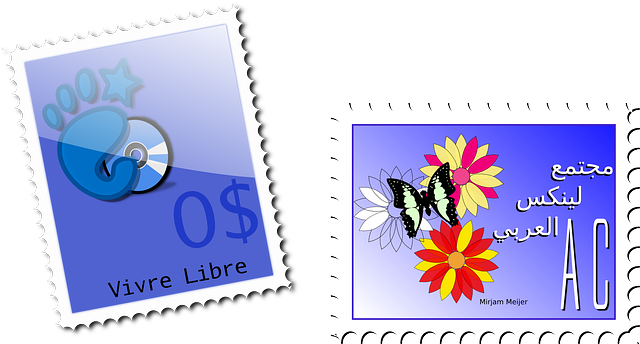Legalised Translation Services UK play a critical role in the immigration process, ensuring that all foreign-language documents submitted for UK immigration are accurately and legally translated. These services provide translations with official certification and legalisation, which are essential for the Home Office to recognize the authenticity of the content and the translator's expertise. Certified translators, who hold professional accreditation like ATI or ITI and adhere to a code of ethics, guarantee the precision and regulatory compliance required by UK immigration law. They handle various documents such as birth certificates, marriage certificates, educational qualifications, and criminal records, transforming them into English or Welsh for submission. Utilizing these services is imperative to navigate the legal language requirements, avoid delays or application rejections due to mistranslations, and ensure a smooth transition for immigrants into the UK. The Legalised Translation Services UK also facilitate the Apostille process for countries under The Hague Apostille Convention and manage additional endorsements for non-member countries, ensuring that immigration documents are universally accepted and recognized.
When navigating the complex journey of immigration to the United Kingdom, legalized translations play a pivotal role in ensuring that your documents are accurately understood by authorities. This article delves into the critical aspects of obtaining trusted legalised translation services UK for a seamless immigration process. We will explore the necessity of these translations, the specific functions of certified translators within UK immigration, and the stringent legal requirements that govern document translation. Additionally, we’ll guide you through identifying reputable legalised translation services UK, outline the translation process including certification and legalisation, and discuss the most common languages and documents needed for your immigration application. Furthermore, practical tips will be provided to ensure your translations are both accurate and acceptable. Lastly, we’ll shed light on the intricacies of the legal framework, particularly regarding Apostille and embassy legalisation, to facilitate your successful integration into the UK.
- Understanding the Necessity of Legalised Translations for Immigration
- The Role of Certified Translators in UK Immigration Processes
- Legal Requirements for Document Translation in UK Immigration Applications
- Identifying Reputable Legalised Translation Services UK
- The Translation Process: From Certification to Legalisation
- Common Languages and Documents Required for UK Immigration
- Tips for Ensuring Accurate and Acceptable Translations
- Navigating the Legal Framework: A Guide to Apostille and Embassy Legalisation
Understanding the Necessity of Legalised Translations for Immigration

When individuals embark on the process of immigration, one critical aspect often overlooked is the importance of legalised translations for official documents. In the UK, immigration authorities require that all foreign-language documents are accurately translated and hold legal status to be considered authentic. Legalised translation services in the UK specialise in this niche, ensuring that translations meet the stringent requirements set by the Home Office and other government bodies. These services not only translate texts but also provide certification and legalisation, which verify the translator’s qualifications and the accuracy of the translation. This certification is a prerequisite for documents to be accepted as part of an immigration application, as it assures the authorities that the translated content corresponds precisely with the original text. Engaging with professional legalised translation services UK-based is essential for a smooth immigration process, as they navigate the complexities of legal terminology and the specific legal context in which these documents will be used. This attention to detail and adherence to legal standards is indispensable for applicants aiming to avoid delays or complications in their immigration proceedings.
The Role of Certified Translators in UK Immigration Processes

When individuals from diverse linguistic backgrounds seek to immigrate to the UK, they are often required to present documents that accurately reflect their personal and professional history in English or Welsh. This is where certified translators play a pivotal role in the immigration process. Legalised translation services UK are specialized entities that offer more than mere language conversion; they provide a critical bridge between applicants and the UK Home Office, ensuring that all official documents meet the stringent requirements set forth by UK immigration laws. These services encompass a wide array of documentation, including but not limited to birth certificates, educational qualifications, marriage certificates, and criminal records. The translations must be precise and authoritative, as any discrepancy or inaccuracy can lead to delays or even denials in the immigration process. Certified translators are proficient linguists who have been vetted and hold professional accreditation, such as the Association of Translators and Interpreters (ATI) or the Institute of Translation and Interpretation (ITI). They adhere to a strict code of ethics and conduct, ensuring that translations are not only faithful to the original content but also comply with UK immigration regulations. Engaging the services of these certified professionals for legalised translation in the UK is an essential step for immigrants, as it facilitates a smoother transition into their new life in the UK, upholding the integrity and security of the immigration system.
Legal Requirements for Document Translation in UK Immigration Applications

Identifying Reputable Legalised Translation Services UK

The Translation Process: From Certification to Legalisation

Common Languages and Documents Required for UK Immigration

Tips for Ensuring Accurate and Acceptable Translations

When embarking on the journey of immigration, legalised translation services in the UK play a pivotal role in ensuring that official documents are accurately represented in the target language. The precision of translations can significantly impact the outcome of visa applications and residency statuses. To guarantee accurate and acceptable translations, it is imperative to engage with professional translation services that specialize in legalised translations for immigration purposes. Firstly, verify the credentials and expertise of the translation agency or individual, as they should be authorized by relevant authorities, such as the Home Office or Professional Translators’ Association (PTA). Secondly, opt for translators who are not only proficient in both source and target languages but also well-versed with legal terminologies and jargon specific to immigration processes. Additionally, ensure that all translations are certified and stamped as ‘true copies of the original’ to comply with legal requirements. By adhering to these guidelines and selecting a reputable legalised translation service in the UK, individuals can mitigate the risks associated with mistranslations and navigate their immigration process with greater confidence.
Navigating the Legal Framework: A Guide to Apostille and Embassy Legalisation

When engaging with international immigration processes, the authentication of legal documents through trusted legalised translation services in the UK is paramount. The Legalised Translation Services UK play a critical role in ensuring that translations of personal documents like birth certificates, marriage certificates, educational qualifications, and other official papers are accepted by foreign governments or authorities. These services facilitate the Apostille process, which is a streamlined method of document authentication for countries that are signatories to The Hague Apostille Convention. An Apostille is a formal stamp or certificate on a document issued by a competent authority where the document is to be used in another country that recognizes said authority. This verification attests to the genuineness of the signature, seal, or stamp on a public document. For countries not part of The Hague Convention, legalised translations may require additional validation through the respective embassy or consulate. This involves submitting the translated document to the relevant UK government department and then to the foreign embassy or consulate for their certification. It is a meticulous process that requires compliance with each country’s specific legal requirements. By utilizing Legalised Translation Services UK, individuals can navigate this framework efficiently, ensuring their immigration documents are valid and recognized by international authorities, thereby avoiding potential delays or denials upon entry to the target country.
In conclusion, navigating the complex journey of immigration requires meticulous attention to detail, particularly when it comes to legal document translation. The necessity of employing trusted legalised translation services in the UK cannot be overstated, as these documents serve as a critical bridge between individuals and immigration authorities. Certified translators play a pivotal role in this process, ensuring that each translation not only accurately conveys the original content but also adheres to the stringent legal requirements set forth for UK immigration applications. By identifying reputable services specialising in legalised translation services UK, applicants can confidently submit their documents, properly certified and legalised, thereby avoiding delays and potential complications. The translation process, from certification to legalisation, is a specialized endeavour that demands expertise and a thorough understanding of both the source and target languages, as well as the legal framework governing such translations. Prospective immigrants should take heed of the common languages and documents required for their applications and follow the tips provided to guarantee the acceptance of their translations. With the right guidance and professional support, the path to securing a new life in the UK can be smoother and more certain.
